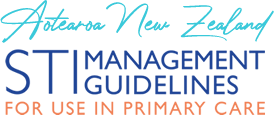- A refugee is a person who, owing to a well founded fear of being persecuted for reasons of race, religion, nationality, membership of a particular social group or political opinion, is outside the country of their nationality and is unable, or owing to such fear, is unwilling to avail themself of the protection of that country1
- A United Nations High Commissioner for Refugees (UNHCR)-mandated refugee is a person who has been granted refugee status by the UNHCR
- An asylum-seeker is someone who fears returning to their own country and has asked Aotearoa New Zealand to recognise them as a refugee or protected person
- Aotearoa New Zealand has a Refugee Quota Programme which resettles UNHCR-mandated refugees to Aotearoa New Zealand. Refugees who are accepted under the Programme are called quota refugees
- Quota refugees are offered the following screening:
Offshore- HIV test as part of the Limited Medical Certificate which is a requirement for visa approval for Aotearoa New Zealand
- Hepatitis B surface antigen (HBsAg), hepatitis C and syphilis tests as part of the voluntary Settlement Health Assessment offered after visa approval
At Te Āhuru Mōwai o Aotearoa (Mangere Refugee Resettlement Centre)
-
- Sexual Health Screening including assessment and screening for chlamydia and gonorrhoea as part of the health programme
- Repeat HIV test if considered at risk
- Hepatitis B, hepatitis C and syphilis tests if considered at risk or earlier screening not done
- Asylum seekers do not have routine screening as part of their application process. Provided they have lodged a claim for refugee and protection status, asylum seekers are eligible for funded health care including sexual health screening. They should have a letter from the Refugee Status Branch (RSB) confirming that they have lodged a claim. Offer sexual health screening to asylum seekers whenever they present for clinical care
- Always engage an accredited interpreter for discussions with former refugees and asylum seekers who require language assistance
See sexual health check guideline
- Offer HIV and syphilis testing as part of a sexual health check, or if not done as part of offshore or post-arrival screening
- Offer hepatitis B and C testing if not done as part of offshore or post-arrival screening, or considered at risk
- Routine offshore hepatitis B screening only tests for hepatitis B surface antigen (HBsAg). If hepatitis B antibody (HBsAb) testing is done in Aotearoa New Zealand and indicates that the person is not immune, offer vaccination. Be aware that, while immunisation is recommended for people from endemic countries, it is only funded for a limited number of indications
- Hepatitis A is spread faeco-orally, and is endemic in much of sub-Saharan Africa and parts of south Asia. Consider vaccination if injecting drug use or indicated by sexual practices, however hepatitis A serology and vaccination are not funded for these indications in Aotearoa New Zealand
Clinical indicators for testing
- All quota refugees are offered individualised post-arrival health screening which takes into account past screening and risk assessment at Te Āhuru Mōwai o Aotearoa. Further testing in the community may be recommended
- Sexual health screening should be offered to asylum seekers whenever they present for clinical care. Screening should include clinical assessment, sexual health screening and testing for hepatitis B and hepatitis C if at risk or immune status is unknown
Special considerations
- Gender-based violence is common in conflict zones and refugee camps. Quota refugees will have had management at Te Āhuru Mōwai o Aotearoa if this was disclosed, with appropriate follow-up recommended. If a history of sexual assault or gender-based violence is disclosed after resettling, offer testing for sexually transmitted infections (STIs) and offer referral to local sexual assault services
- Some women from refugee backgrounds may have female genital mutilation (FGM). More than 200 million girls and women alive today have been cut.2 Countries where genital mutilation is practised include Somalia, Northern Sudan, Djibouti, Ethiopia, Eritrea, Egypt, Kurdistan, Indonesia, Malaysia and India. Some swabs and cervical smears may not be possible. For health professionals caring for women with genital mutilation, there are good resources that can be ordered from the Female Genital Mutilation in New Zealand website
- Many women from refugee backgrounds have never had a cervical smear before coming to Aotearoa New Zealand. They will be offered their first smear at Te Āhuru Mōwai o Aotearoa and consent requested for participation in the cervical screening programme. Take the opportunity to follow up with women of refugee background about cervical screening
- Family planning practices in Aotearoa New Zealand may be new to former refugees. Family planning will have been discussed at Te Āhuru Mōwai o Aotearoa. Consider following up about family planning. A helpful term may be ‘family spacing’
Follow up, even if all test results are negative. Use the opportunity to:
- Educate about condom use and risk minimisation
- Discuss family planning
- For women, discuss and, if appropriate, offer a cervical smear
- Vaccinate for HPV if under 27 years of age (funded). Consider HPV vaccination (unfunded) if aged over 27 years and frequent partner change, or if HIV positive
- 95% of people of refugee background and asylum seekers requiring language assistance have an accredited interpreter for their consultation.
- United Nations Human Rights. Convention relating to the Status of Refugees. 28 July 1951. Available at: https://www.ohchr.org/en/professionalinterest/pages/statusofrefugees.aspx (last accessed 21 May 2021).
- UNICEF: Female Genital Mutilation/Cutting: A Global Concern

